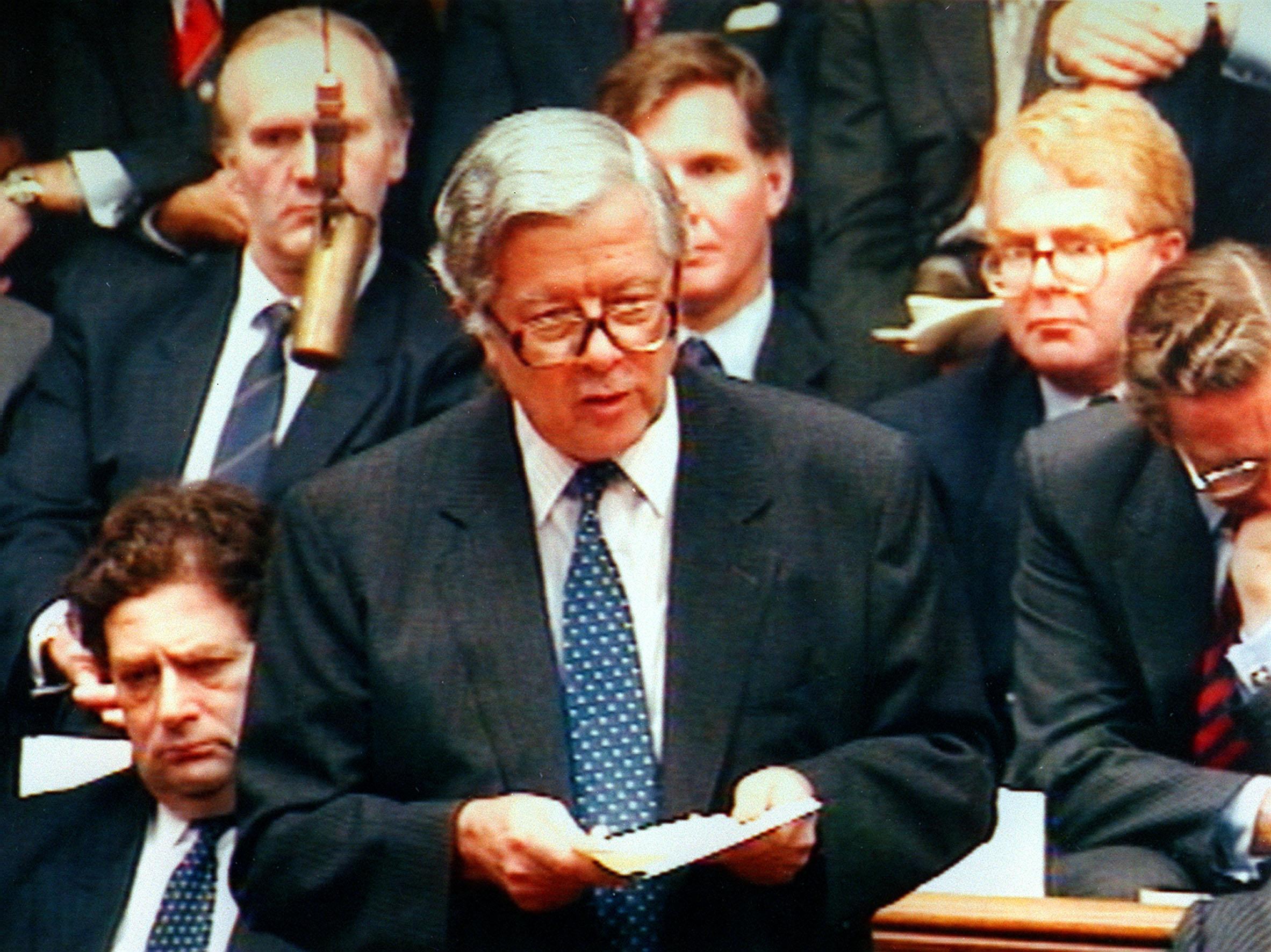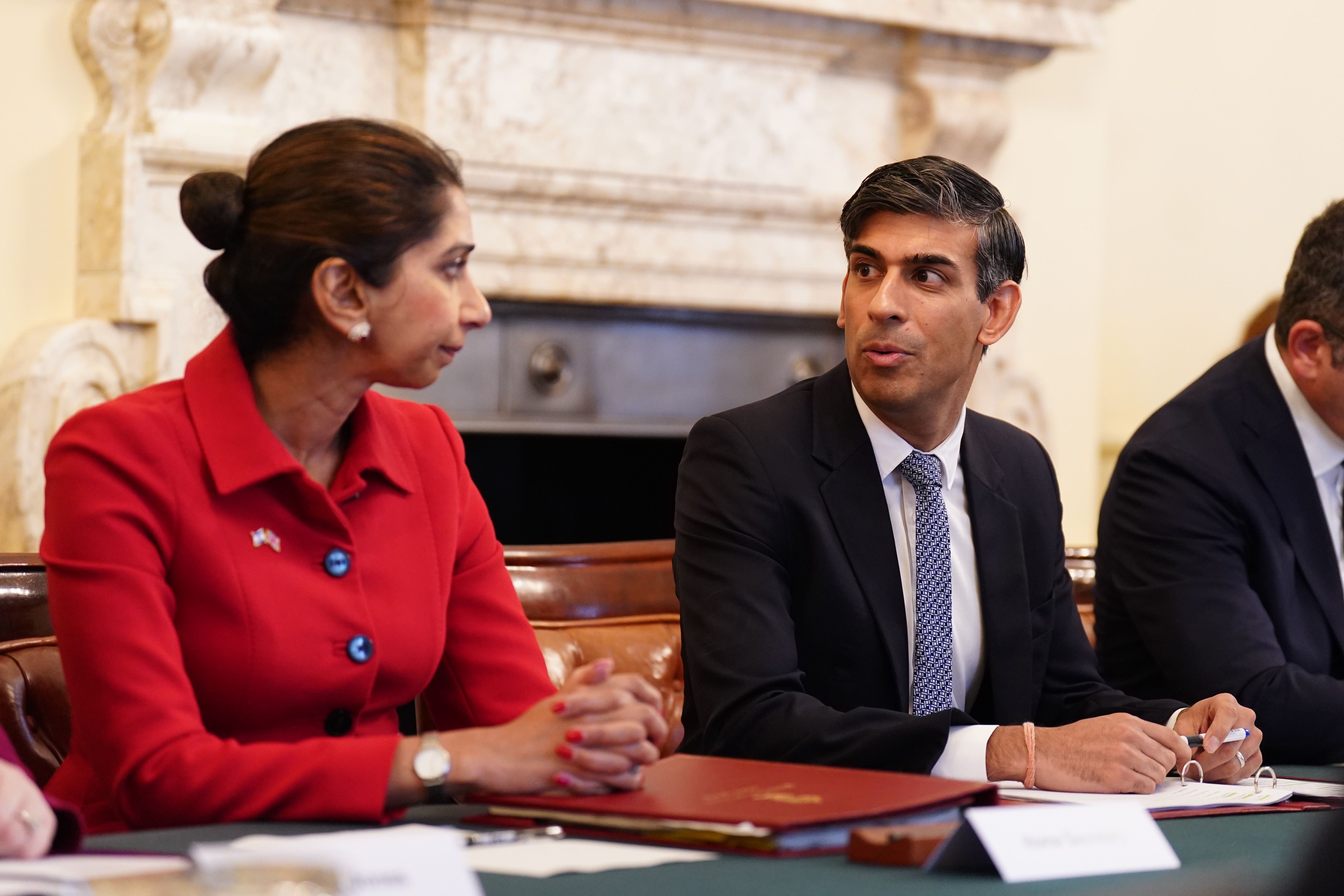Braverman’s humiliation of Sunak has echoes of Geoffrey Howe’s deadly attack on Thatcher
Her furious swipe at Rishi Sunak will go down in history, writes John Rentoul, but will it be a fatal blow?


Her departure was followed by a delayed explosion. Suella Braverman’s resignation letter was quite a bang: it is one of the most remarkable political documents ever published. The tone of fury is unmistakeable.
It recalls that other great act of revenge in resignation, of Sir Geoffrey Howe, who triggered the events that brought Margaret Thatcher down in 1990. He was a normally undemonstrative figure, who calmly launched an Exocet at his boss, releasing the pent-up anger of 11 years with quiet venom and deadly accuracy.
Braverman, on the other hand, is like an out-of-control punter starting a bar brawl with a broken bottle; she has been noisy and objectionable for some time, but has now gone into a rage.
Her letter starts reasonably enough, thanking the prime minister “for your phone call yesterday morning in which you asked me to leave government”. But already the undertone is menacing – the sacking was done by phone, instead of the usual courtesy of a face-to-face meeting because Braverman and Rishi Sunak plainly cannot stand each other.
The claim that Rishi Sunak agreed to a “document” setting out four promises he made in return for her support for him to become prime minister is incendiary. Not often are the backroom deals and haggling of politics laid bare, and it doesn’t reflect well on her that she exposes the inner workings. It distracts from the differences of principle about which she purports to care to protest about Sunak reneging on a deal. Especially when it is accompanied by the self-important boast: “It is generally agreed that my support was a pivotal factor in winning the leadership contest and thus enabling you to become prime minister.”
It makes it sound as if she cares about herself rather more than she cares about the policies that she claims are so important. If those policies were so important, and if Sunak failed to implement them as agreed, then she should have resigned rather than waiting to be sacked.

The tone then turns vicious. “You never had any intention of keeping your promises,” Braverman writes. “Our deal was no mere promise over dinner, to be discarded when convenient and denied when challenged.”
She accuses Sunak of “not merely a betrayal of our agreement, but a betrayal of your promise to the nation that you would do ‘whatever it takes’ to stop the boats”. But it is her supposed betrayal that comes first, and that of the principle second.
It is a wild condemnation from someone who appears not to care about the consequences. If Howe was a dead sheep, Braverman is a raging bull. She doesn’t appear to care whether she gets hurt; she is going to war. It is a civil war in the Conservative Party that she cannot win. In her righteous anger she seems to suppose that, if she sets out forcefully enough what a terrible person Sunak is, the party will rally as one behind her. She has become oblivious to the damage she is doing to herself – unable to see how petulant she seems to anyone but the most entrenched of her own supporters.
Like many a pub brawler, she has moments of lucidity. She sets out a rather fancy argument that tomorrow’s Supreme Court verdict on the Rwanda scheme will be a defeat for the government either way. This segues into a rant about “hate marches”, deliberately using the phrase again: “I have become hoarse urging you to consider legislation to ban the hate marches.”
Again, if she was making so little progress towards her goals, why hadn’t she resigned?
I don’t know about hate marches, but this is one of the most hate-filled resignation letters in British political history. It ranks with Sir Geoffrey’s resignation speech for its shock value, but it won’t be as effective. In 1990, most Tory MPs agreed with Sir Geoffrey that Thatcher should go – and that if she went, the party had a chance of saving the coming election.
In 2023, most Tory MPs have resigned themselves to sticking with Sunak for the duration, keeping their heads down as the furniture flies around them.






Join our commenting forum
Join thought-provoking conversations, follow other Independent readers and see their replies
Comments